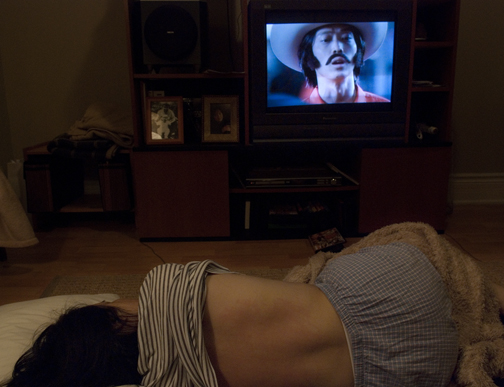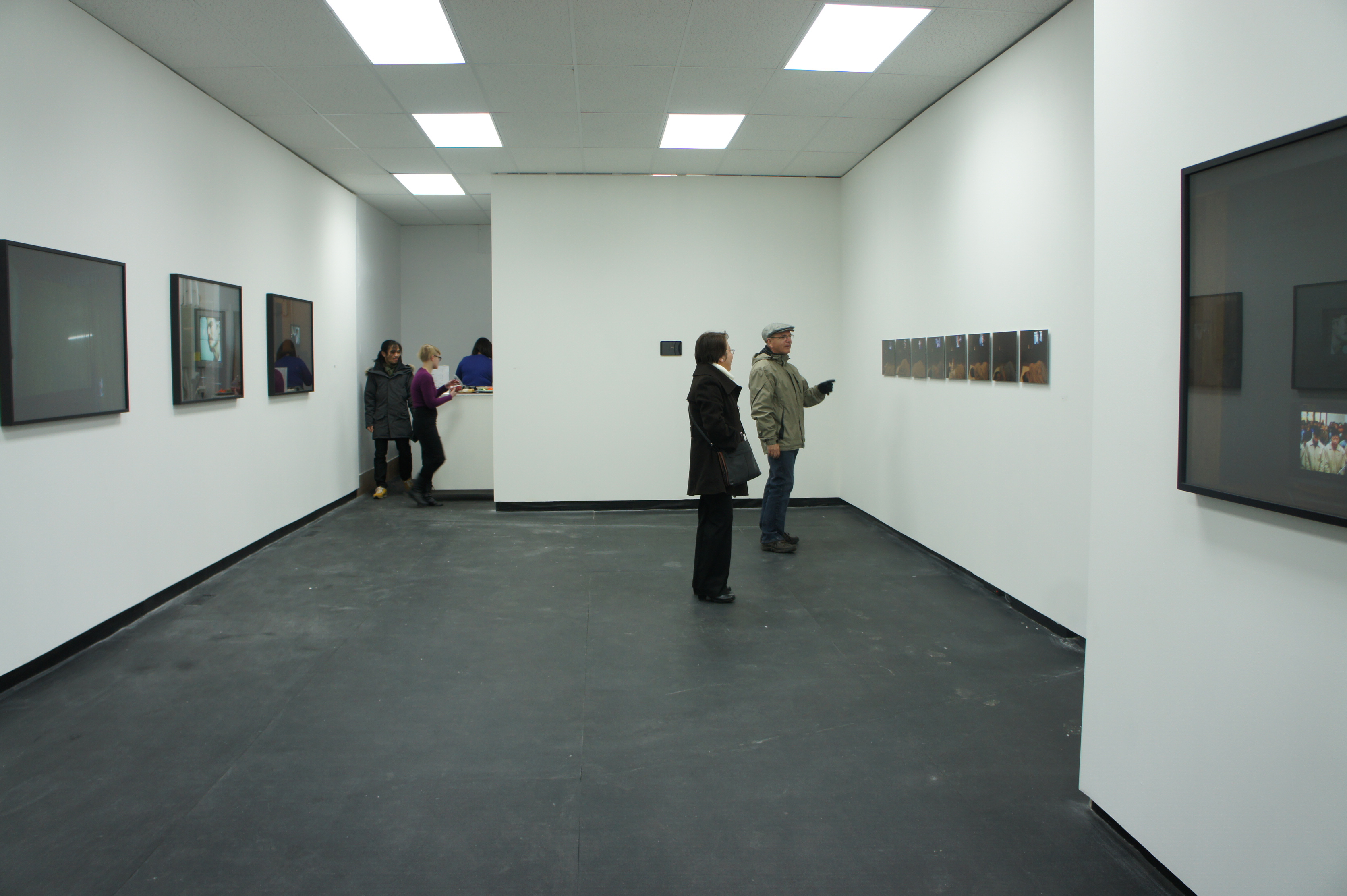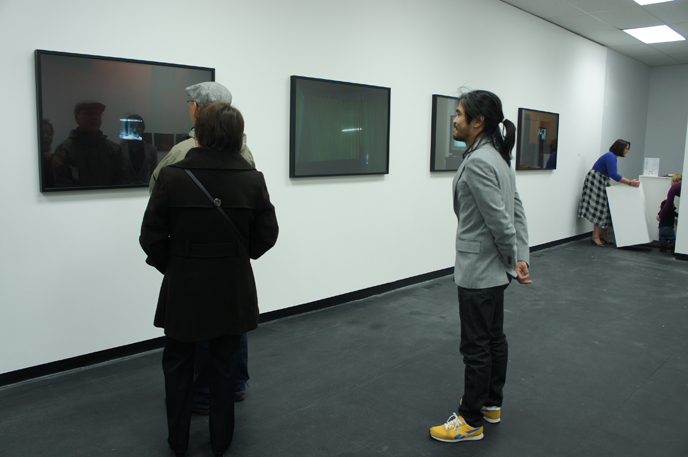MAINSPACE EXHIBITION /

Water Torture
My Le Nguyen
November 8 to December 14, 2013
In Water Torture, My Le Nguyen looks at the barriers of geography, culture, and skin – the overwhelmingly minute things that keep us apart. Her work stems from attempts to meet with her estranged father in Vietnam and her regular visits to the country thereafter. In foreign and familiar places, on television screens or hotel rooms, she finds traces of her missing father, forgotten homeland, and unknown child. She gives us a sense of the distance, containment, and alienation that routinely define our lives – the barriers we can never truly escape.
Up All Night
Television knows no night. It is perpetual day. TV embodies our fear of the dark, of night, of the other side of things.
– Jean Baudrillard [1]
My Le Nguyen’s photographs and videos hold a disquieting sense of time. In contrast to the steady, sometimes too-quick flow of the life I experience, Nguyen’s worlds feel stuck, as though they’ve been taken outside of time. She locates moments of pause, spaces where the rhythm of daily life stagnates and only a persistent loneliness remains. Her spaces are familiar, but in a way that makes me a little uncomfortable, as though they represent a reminder of something I’d prefer to shelve away.
In these worlds, a barrier is always present. In Nguyen’s two photographic series, that barrier is the television screen, and it is omnipresent. The TV is a loaded metaphor, and an object that many of us have a complicated relationship with. We turn to televisions for comfort, for escape, for relaxation. But often, it comes with a sense of guilt, and the potential for dependency. For many, the television is a constant comfort, and that constancy is addictive. As Baudrillard implies, the television is our cultural nightlight – it’s always there to keep us distracted, if we want it.
Switch depicts a series of hotel rooms that contain only the tracings of an inhabitant: loosely placed clothing, open suitcases, various personal effects. These, along with scenes taken in austerly-lit restaurants and shops, are the underside of travelling, the quiet interludes that don’t generally get photographed. A television monitor appears in each scene, always containing a freeze-frame of a different on-screen character. I find myself trying to draw some connective thread between each setting and its accompanying TV portrait: in Binh Duong Hotel, the bifurcated face echoes the shape of the hotel wall behind the monitor; in Majestic Hotel, I imagine the screen couple walking into the hotel, as though viewed through a security camera.
My Parents is set in the living room of the artist’s mother. A television sits centre-stage: the mother’s unwavering companion. She lies in front of it in a restless state between sleeping and waking. Only one parent is visible in the room, yet Nguyen’s plural usage points to an absence. And so we come to associate the men who sequentially appear in the television screen as surrogate fathers. These surrogates are obviously inadequate, serving to underscore a sense of loss, and suggesting the root cause of the woman’s continual listlessness before the screen.
A different kind of barrier exists in Nguyen’s video, Water Torture. Here, an arch of skin marks the place of division between the exterior and interior of a pregnant woman’s body. Subtle movements that indicate both the woman’s breath and the movement of a fetus push the skin outward. The quiet, contemplative rhythm of water dropping on skin seems at odds with the emotionally fraught title. The disjunction between the two lends a sense of unease to the scene. “Water torture” is a loaded term; perhaps it speaks to the unfamiliar sensations of the fetus living under the skin, the strangeness of pregnancy, and the ultimate responsibility of giving birth and raising another human being.
Ultimately, a sense of disconnection pervades Nguyen’s work: between mother and child, between a mother and an absent father, and between the traveller and their environment. Despite our expectations for continual companionship, her work points to the isolation and loneliness that we can never entirely escape.
– Shannon Anderson
Note
[1] Jean Baudrillard, Cool Memories, trans. Chris Turner (New York: Verso, 1990), 169.


Biographies
My Le Nguyen was born in Danang, Vietnam. At age 9, she moved to Toronto.
Shannon Anderson is an independent writer, curator and editor based in Oakville, Ontario. She has contributed essays to publications produced by the Art Gallery of Southwestern Manitoba, the Koffler Gallery, Oakville Galleries, Stride Gallery, the Textile Museum of Canada and the Varley Art Gallery of Markham, and her writing has appeared in such magazines as Art Papers, Azure, C Magazine, Canadian Art, DesignLines, and EyeMazing Amsterdam.
